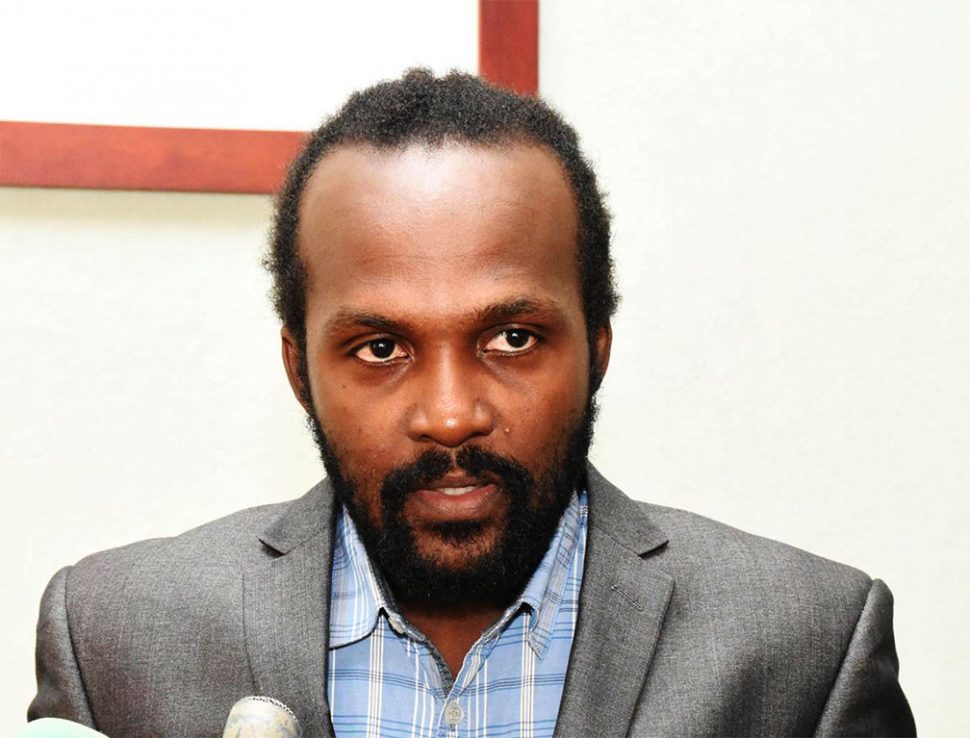Three years after its formation, the Office of Undergraduate Research at the University of Guyana (UG) is moving forward with optimism.
According to its Director, Dr. Troy Thomas, the office counts its annual Undergraduate Research Conference as its major success and looks forward to possibly being able to publish its own journal of local research papers.
“There are many departments that do research and have been doing research before the office was established. What we provide is a forum for them to present locally at the annual conferences at Turkeyen and Tain, and we have been looking at opportunities for students to present overseas,” Thomas told Sunday Stabroek in a recent interview.
The Director noted that through the Council on Undergraduate Research (CUR) the office is working to create networks which would allow local students to access an international audience for their work, while locally the university is working to have the local conference act as incentive for local researchers.
The conference, which was first held in 2017, is scheduled for April 8th to April 12th, 2019, a period referred to as Undergraduate Research Week by CUR. CUR has designated a week in April every year as Undergraduate Research Week.
Thomas explained that while 2017 was a truncated year for the office, the Academic Year 2017/2018 saw it being able to send students to Oklahoma, USA, to make presentations on their research and also saw the development of several programmes geared towards generating an interest in research as early as the first year.
“We want to teach research skills since they enter year one, so that we don’t have persons in their third or fourth year struggling to develop the skills they need to complete their thesis,” he noted.
The researcher shared that currently a cohort of eight first year volunteers are engaged in an analysis of the diversity of students who have been accessing various programmes at the university. The hope is that any trends revealed by this research can be used to impact the university’s recruitment policies.
The university does not collect data on ethnicity, he cautioned, before noting that information on gender and geographical origins do exist and can be used to understand how male students access the university as opposed to female students, as well as, how those from a rural background choose to study versus those of a more urban origin.
The undergraduates, who are part of the programme, Thomas explained, are currently being taught to use various research software and once familiar enough they will have access to the university’s data, so that by December the office will have a report on diversity at the university over the last five (5) years, ready for publication.
Thomas stressed that while there are several avenues of research being explored which can impact UG’s policymaking, the office has not yet cultivated any relationships with government agencies which would lead to an impact on national policy.
The Director further noted that the office has been exploring the possibility of publishing a collection of undergraduate research but has not received much interest from either lecturers, or students, who have become former students by the time their theses are ready for publication.
“We have not yet figured out how to compensate lecturers for what amounts to extra work, nor have we been successful in convincing graduates to return to work with us in making their work presentable for publication,” he explained.
One major stumbling block is the format in which research is currently being submitted.
“We need the material to be formatted as an article rather than a research paper and we are hoping to work with faculties to provide alternatives so that students can make their original submission in this format so that it can be published,” he indicated.
For now, much of Thomas’ hopes rest on generating both interest and money. The office consists of only three persons: Thomas, his deputy and a recently hired administrative assistant,- and while they are keen to bring much of this work to fruition, there is not much they alone can do.






